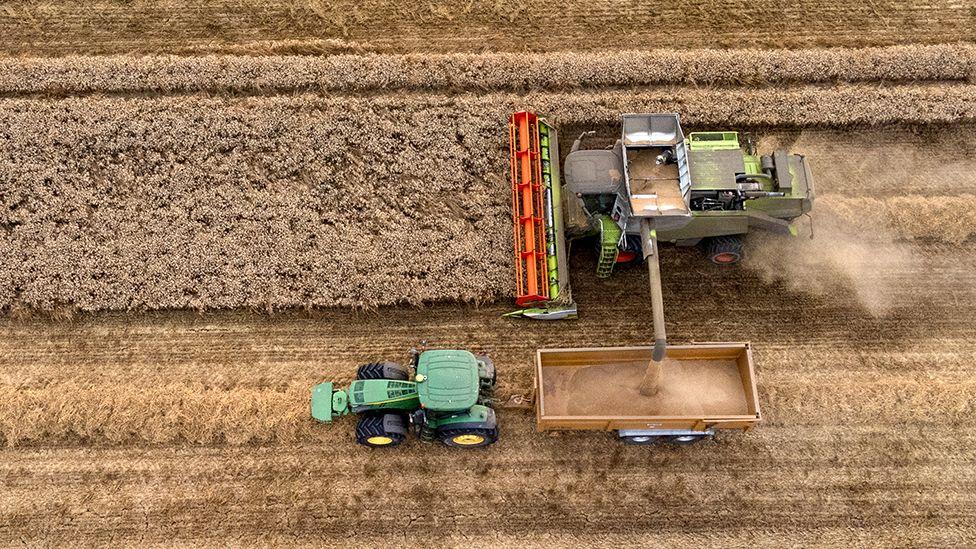Wine and wasabi - the new front line for climate change
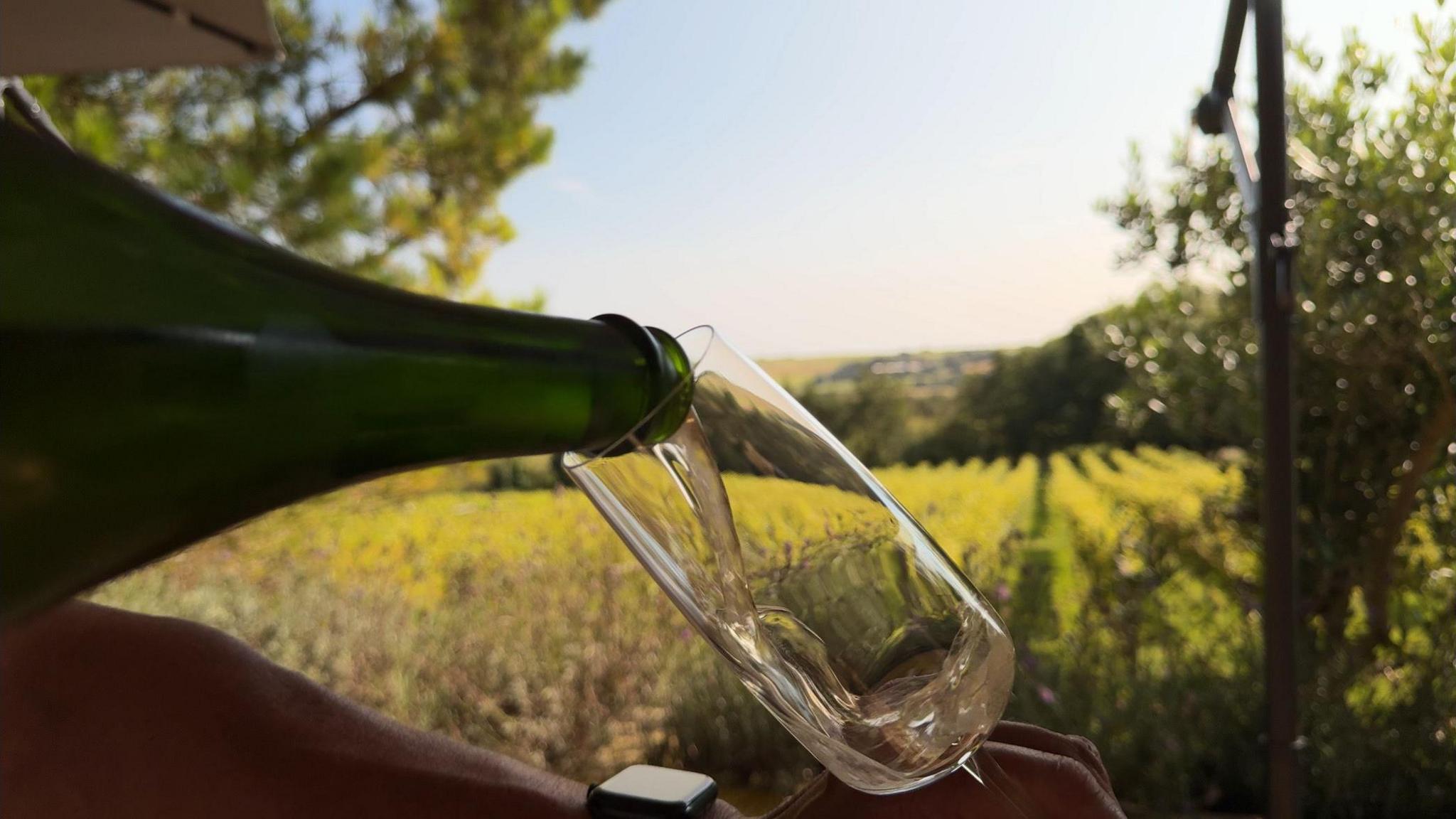
The vineyard owners are proud of the variety of alcohol they make, including a British sparkling wine
- Published
Producers of wasabi and wine have described the challenges of growing their crops in increasingly wet and unpredictable weather.
All 10 of the warmest years on record have been since 2003 - with 2022 being the hottest.
However, since 1998, the UK has also seen six of the 10 wettest years on record.
The BBC visited the Little Waddon Vineyard in Dorset and the Wasabi Company in Hampshire to ask them what they think.
Winemakers Karen and Simon Priestman believe it is more difficult for growers in this climate.
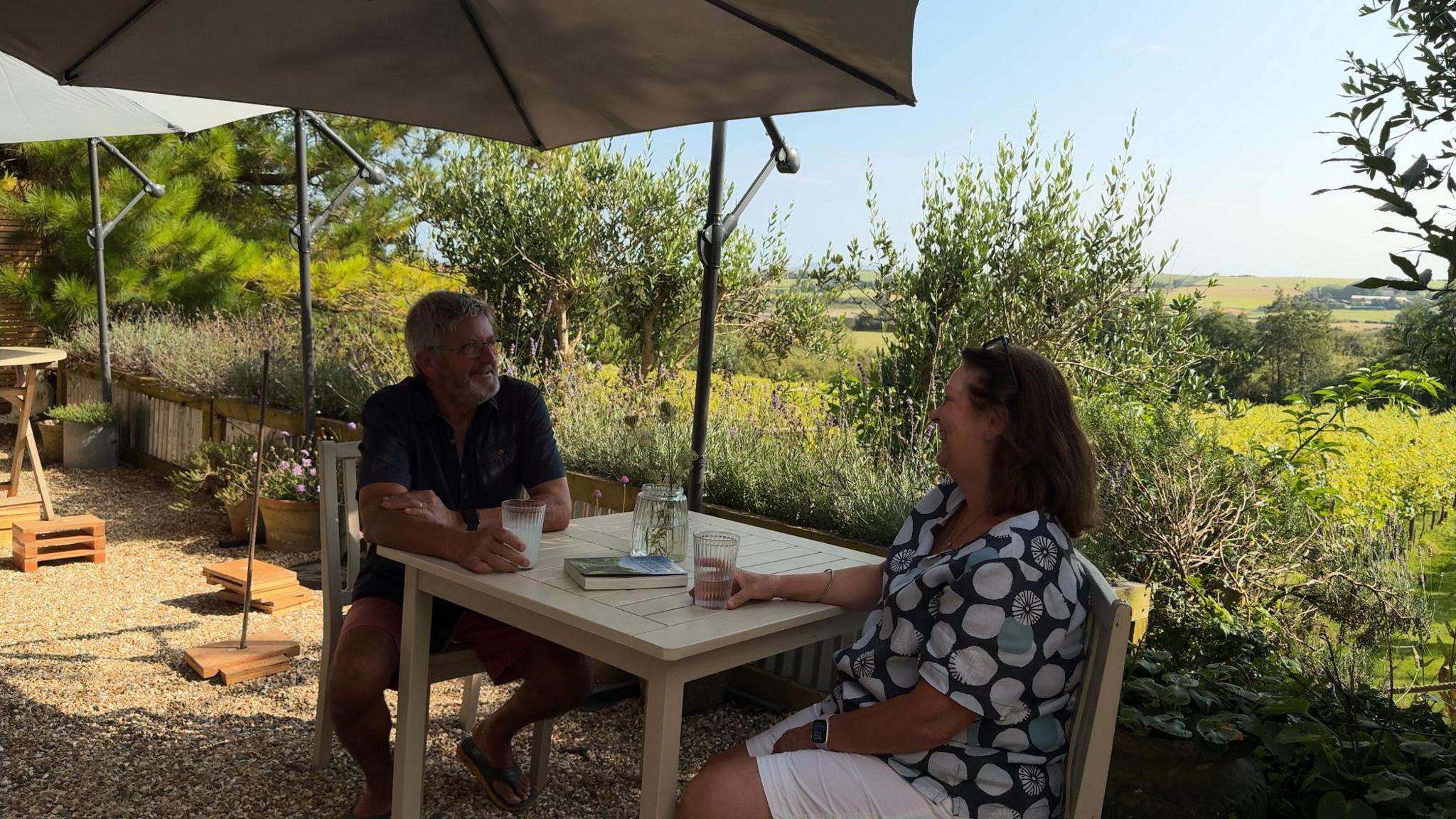
Karen and Simon Priestman say they have always grown something
"Is it global warming or is it global wetting?" says Mr Priestman.
"We think it's global wetting."
The married couple follow an ethos they call "grape to glass".
They are low intervention winemakers who grow without using pesticides, chemicals or even adding water.
Due to its situation on a south-facing slope, they get large amounts of run-off from the hills behind.
During lots of rainfall, it provides plenty of hydration for the vines.
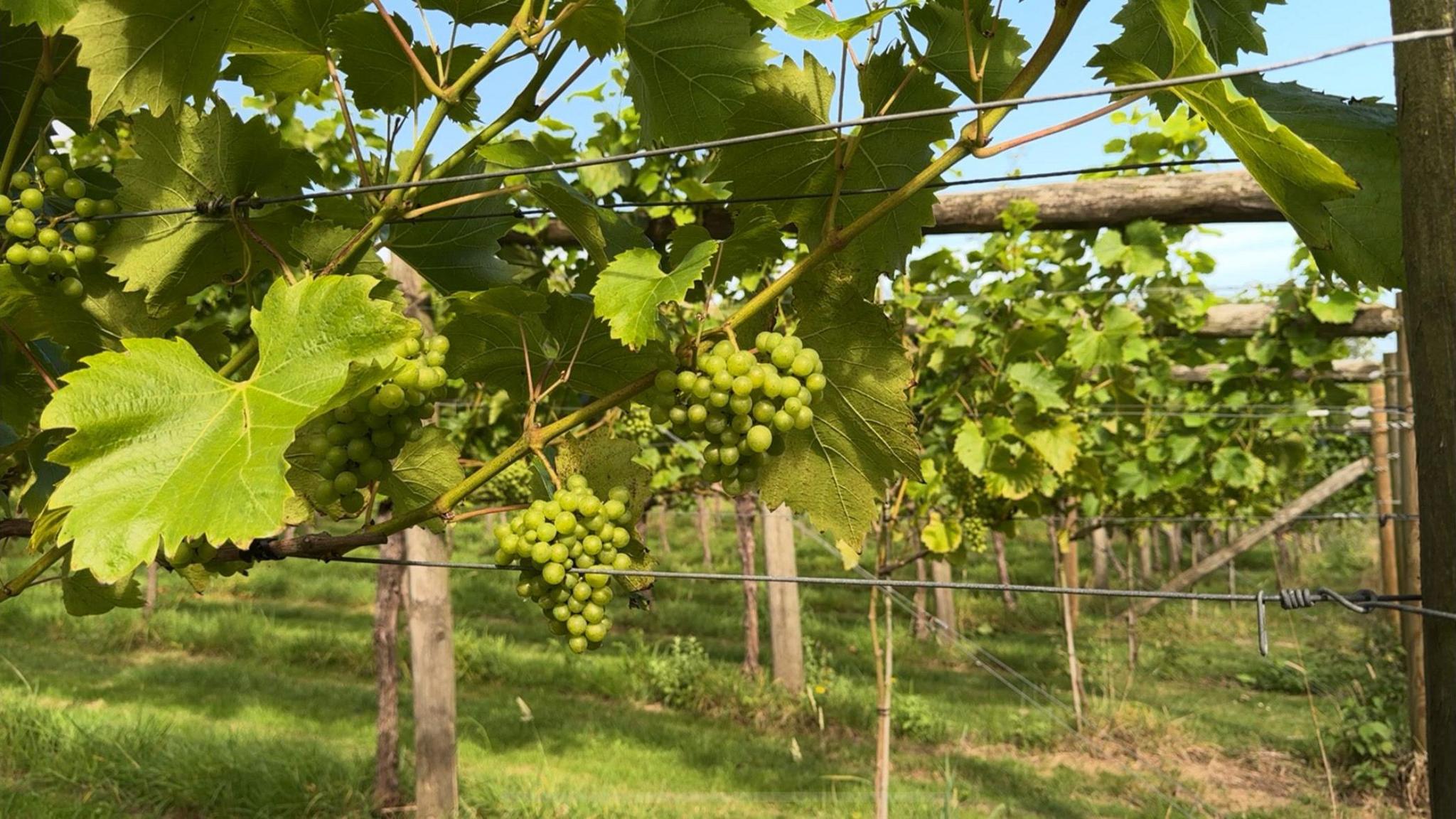
The grapes are harvested when they are at their juiciest
"We don't need to irrigate, not in Dorset," says Mrs Priestman.
Producing a variety of wines - red, white, and a British sparkling - harvest falls around October.
As early as March, their time is spent maintaining the vineyard. Pruning allows both air and sunlight to move freely between the vines.
But they say while they have produced some amazing sparkling wine, they are facing real challenges.
"We seem to have some really hot years, and then some bad years," says Mrs Priestman.
"When it's very wet, you get downy-mildew. I think that weather is going to happen more and more - and that's really challenging for growers."
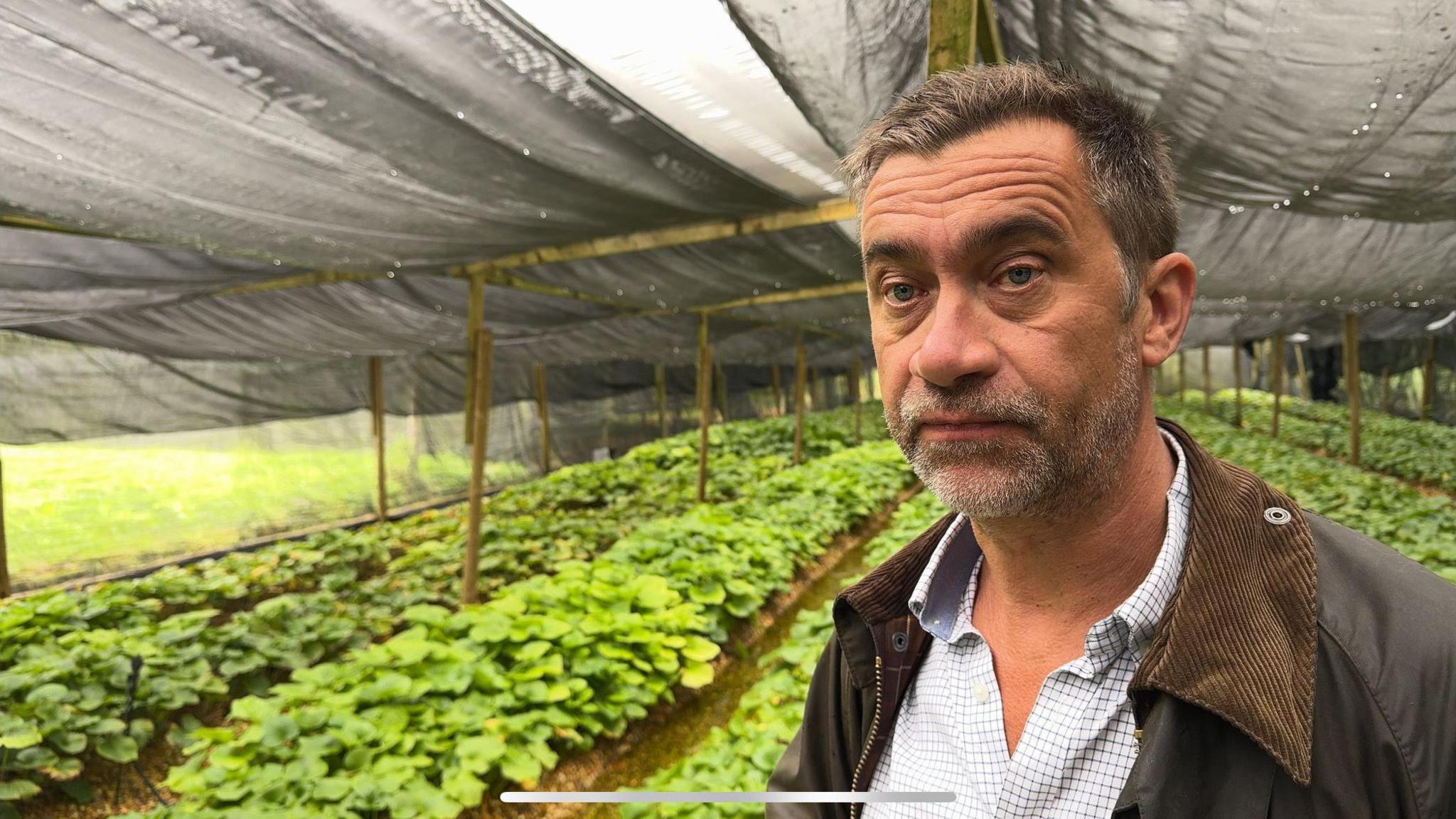
Farmer Jon Old says growing wasabi will become more difficult in a warmer climate
Jon Old, founder of the Wasabi Company, has been growing wasabi in the UK for over a decade.
Known for its mustard-like kick, it is an aromatic spice traditionally eaten with sushi.
It is an aquatic crop, much of which grows alongside Japanese mountain streams.
His family have been watercress farmers here since the 1850s, but until a chef told him of a farm he had seen in Japan that grew something similar, he had not grown anything else.
Flowing through the beds on Mr Old's farm is natural, mineral-rich water fed by springs more than 40m below the ground.
"It just planted a seed in our head and we thought 'well if wasabi grows in water, then maybe it's something we can do'," he says.
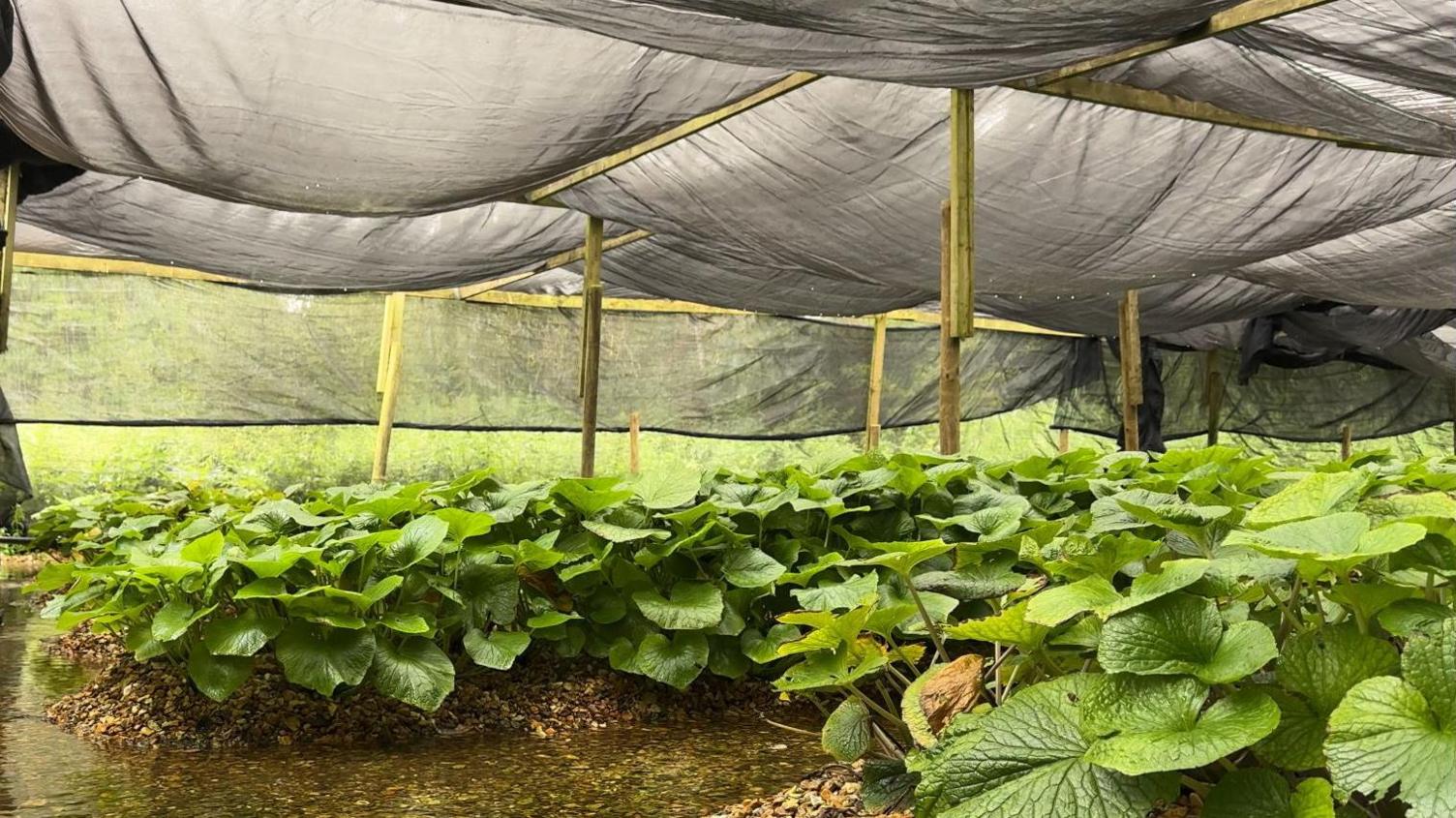
More nets are used as shade when the sun is intense
Wasabi takes roughly 18 months to grow.
In that time, the stem grows above ground and gets bigger as the leaves fall away. This stem is called a rhizome.
Although not native to the UK, Mr Old stresses the conditions for growing wasabi on his farm are ideal - but a warming climate leaves a bitter taste in his mouth.
He says very high temperatures and light levels can "cause a yellowing to the leaves and it will eventually stop growing".
"If we're getting longer summers, if we're getting hotter summers, then it does become more of a challenge to grow wasabi - even in the UK."
Get in touch
Do you have a story BBC Dorset should cover?
You can follow BBC Dorset on Facebook, external, X (Twitter), external, or Instagram, external.
Related internet links
- Published26 January 2022
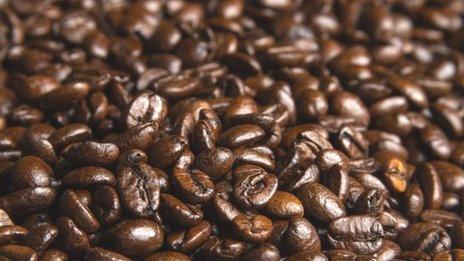
- Published6 September 2024
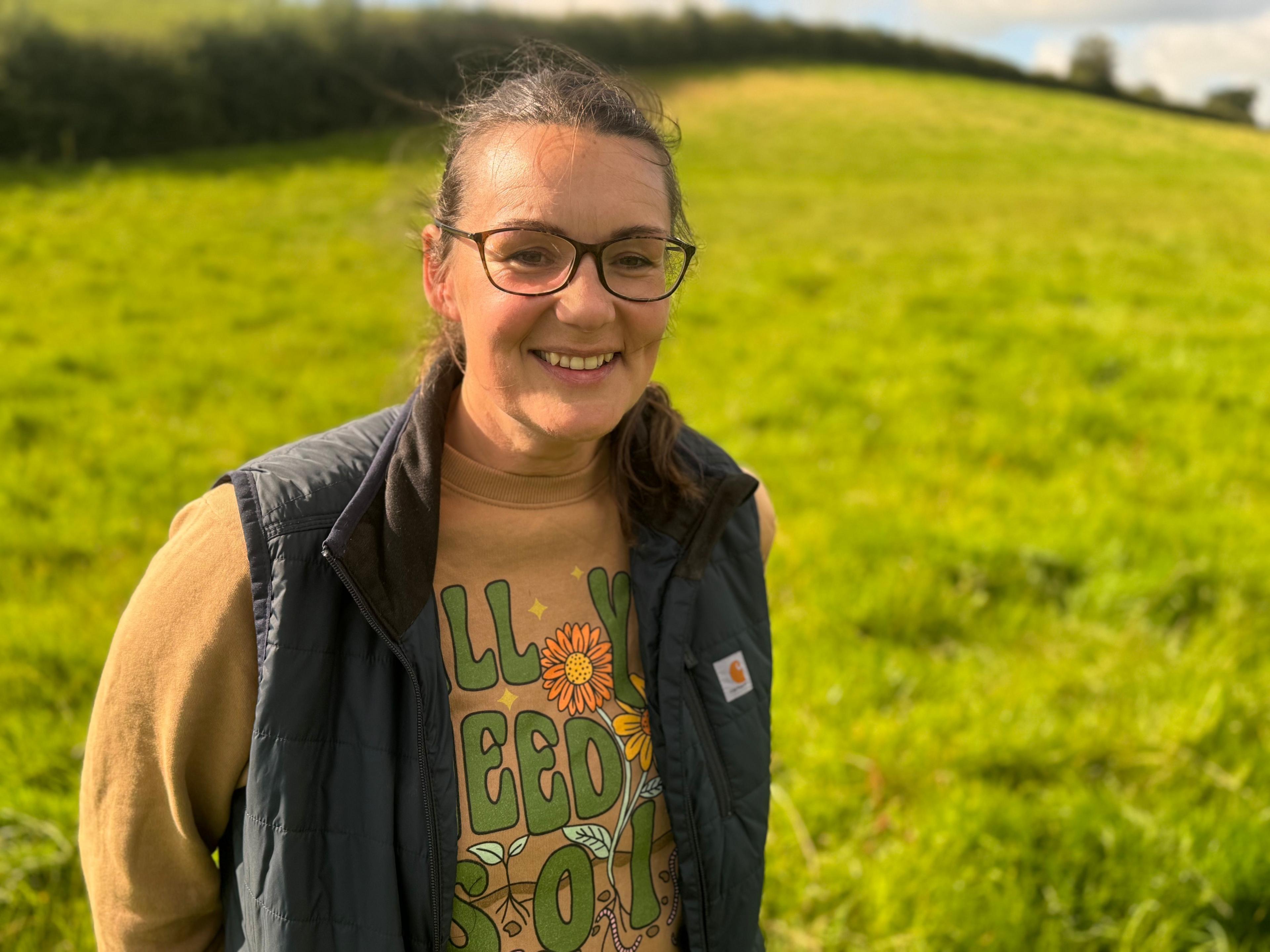
- Published11 September 2024
